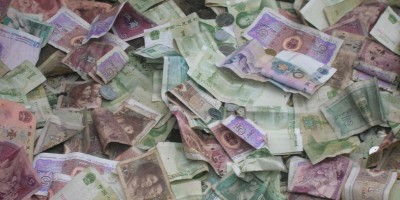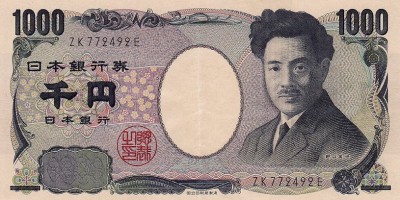If you’re trying to figure out what’s currently happening with the Mongolian economy, the band Blood, Sweat, & Tears provides the most concise summation from their song “Spinning Wheel”
What goes up, must come down…1
Economists spend a lot of time talking about equilibriums. The reason is that economies and markets with their various opposing forces have a tendency to correct imbalances and return to their natural equilibriums over the long-run regardless of what policymakers might do to circumvent those forces in the short-run. If things go up artificially without proportional shifts in the underlying fundamentals, then eventually things have to come crashing down. Over the course of the last year, the Mongolian economy has seen significant reductions in its primary sources of income, coal exports and Foreign Direct Investment (FDI), while at the same time the government has gone on an off-budget spending binge with loose fiscal and monetary policies. In short, the economy is suffering from an income and expense imbalance that is under growing pressure for a correction.
Coal represents the largest source of export revenue for Mongolia. There was a nearly 50 percent year-on-year decline in coal export revenue through the first eight months of 2013.2 This was due to weakening demand in China, and was further exacerbated by the fact that Mongolian coal has a comparative disadvantage to Chinese domestic producers in production and transportation costs.3 The impact has been most visible at Tavan Tolgoi (TT) which has spent the year off-and-on producing coal at a loss to meet the terms of its $250 million pre-payment supply deal with Chalco. Until the Chinese coal market recovers, there isn’t much the government can do to get coal export revenues up. In the long-run, however, the government could get serious about reducing production costs and improving quality by attracting real and sustained international investment in transportation infrastructure projects and in deposits like Tavan Tolgoi.
And, that leads into the other major problem hurting the economy. FDI has declined significantly in the last year, and the unstable and erratic regulatory and legal environment in the country seems like the most likely suspect propelling the decline. Given that Mongolia produces mostly commodities for export and the domestic economy is too small to support billion dollar investment projects on its own, FDI is absolutely critical for the economy’s continued growth.
The impact of these declines has been made worse by the fact that the government has moved a lot of spending to off-budget programs such as price stabilization, discounted mortgage loans, and infrastructure projects funded by the Chinggis Bonds. These programs have essentially amounted to printing tugriks to dodge the constraints of the new fiscal stability law which puts strict limits on the size of the budget deficit. The law was intended to make government policy and spending become counter-cyclical to commodities prices, but it has just encouraged efforts to hide spending. As a result, the tugrik is depreciating rapidly to record lows. Tugriks are being printed faster than real output in the domestic economy can produce or exports and FDI can counter-balance in foreign reserves.
So, what can the government do? Get non-tugrik revenue fast is the easy answer. On that basis, it should come as no surprise that the first international trip the Prime Minister has made in his tenure was to go to Japan last week to attempt to raise hundreds of millions of dollars in new bonds. The problem with this, of course, is that it does not address the underlying imbalances. It just kicks the problem down the road and buys the government some time to hope the Chinese coal market turns around and FDI starts growing again. That’s not impossible, but Chinese market conditions are out of the government’s control. FDI levels are arguably more within the government’s control, but it is still not clear if the politicians who have pushed discriminatory and regressive policies aimed at FDI projects over the last few years are sufficiently convinced of the error of their ways.
The weeks and months ahead will prove a real challenge to the factious political environment within the government and parliament. The special session of parliament starting this week will provide a good first test of whether policymakers are serious about getting Mongolia’s fundamentals right for the long-term. After all, if Blood, Sweat, & Tears are to be believed, what goes up, must come down…
Footnotes
1. Blood, Sweat, & Tears, “Spinning Wheel”, Lyrics Mode, http://www.lyricsmode.com/lyrics/b/blood_sweat_tears/spinning_wheel.html.
2. See National Statistics Office: http://www.nso.mn/v3/files/Foreign%20trade%20130815.pdf.
3. B.Khuder, “Mining Ministry: Mongolian coal is forced out of big market”, Montsame, http://www.montsame.gov.mn/en/index.php/mining/item/1554-mining-ministry-mongolian-coal-is-being-forced-out-of-big-market, 2013-7-25.



